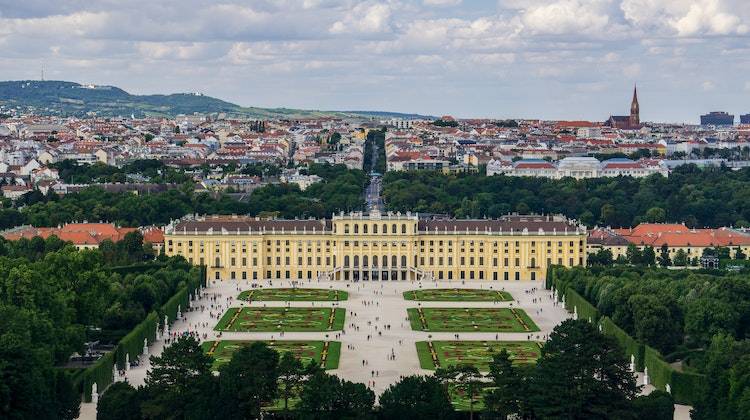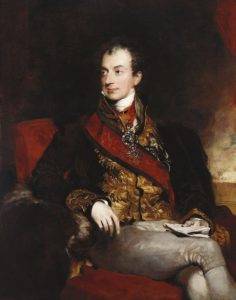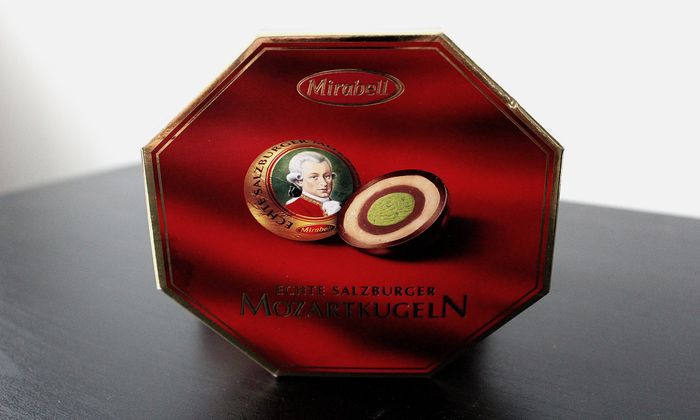Sometimes we can find crucial moments in history. The Congress of Vienna, that took place in the 19th century is an example of one of those decisive moments. What did the Congress of Vienna do? What happened there and what was decided?
As a history teacher in Europe, I often talk about the congress and its effects throughout history. So I decided to summarize the most important information you need to know about this important political meeting. You can read the answer on the most asked questions, and more, down below in this article.
What was the Congress of Vienna in simple terms?
In simple terms, the Congress of Vienna is a meeting between the emperors, kings and other powerful rulers in Europe that took place in 1814-1815 after the victory over Napoleon during the Battle of Waterloo. The purpose of the assembly was to decide what to do with the remaining empire of Napoleon. The Congress of Vienna was a conservative one, turning the clock of society back to the pre – French Revolution era where kings had absolute power.
Why is the Congress of Vienna so significant?
The significance of the Congress of Vienna cannot be underestimated. Not only did it change society and the map of Europe in the 19th century. It was also the seed of future problems like the First World War.
When did the Congress of Vienna took place and who were its representatives?
The Congress of Vienna took place in the city of Vienna. In the 19th century, Austria was one of the oldest and most powerful empires in European history, although its powers were rapidly declining. Being the centre of Europe, literaly and figuratively, it was the place to decide the future of Europe.
Attending the Congress of Vienna were kings and emperors of that era. They represented nations like England, Russia, The Netherlands, Prussia and of course Austria itself. There were also some representatives of France, that took over power after Napoleon was banished to the island of Saint-Helena after his defeat at Waterloo, in Belgium.
What was the location of the Congress of Vienna?

What countries where at the Congress of Vienna?
Which nations did not attend the Congress of Vienna?
What countries had the most power in the Congress of Vienna?
Because minister Metternich was in charge of the congress, he could put his own political agenda as a priority to discuss. Metternich was the minister of the Austrian empire, it was Austria who was having the upper hand during this meeting.
Another region that was rising in power was Prussia. It would also be Prussia who would, not that much later, made a move to unite the German regions into one German empire. The Congress of Vienna was one of their first moves to gain more power and geographical control.
What happened at the Congress of Vienna in 1815?
It was not a surprise that the Congress of Vienna was organized in 1814-1815. It was the time that the opposition against Napoleon Bonaparte was at its highest point. Especially after the loss of Napoleon at the Battle of Waterloo in 1815, the absolute powers decided at the congress what should happen with Napoleon and his former empire.
What were the main problems of the Congress of Vienna?
The main questions that were asked during the congress was what would happen with the empire of former French ruler Napoleon. He was defeated at Waterloo but he ruled almost the whole of Europe. These regions now needed new rulers and this pie of power was divided at the Congress of Vienna.
What was the main objective of the Treaty of Vienna?
What were the main goals of the Congress of Vienna? The main objective, or goal, was to re-establish the power of the old emperors and kings. They had lost power during the French Revolution and the spread of liberal and nationalistic ideas. Another example was the American Revolution where Great-Britain lost its power.
To regain their powers, the rulers tried to go back to the era before the French Revolution, so before 14th of July 1789. During the centuries before 1789, they had absolute power while claiming to be appointed by God. They had very little responsibility for their people and they cared even less about the voice of those people.
Was the Congress of Vienna biased in any way?
Yes, very much. It was organized by the rulers that had lost power over the years. Their main goal was not restoring power for the people or to search for the best solutions for European politics. Their main goal was to regain as much as power and land as they could after Napoleon was defeated making his empire a victim of greed rulers.
What decisions were taken at the congress of Vienna?
The decisions that were made at the congress of Vienna were both political and geographical.
Politically, the former French empire of Napoleon was dissolved. The old rulers, kings and emperors, were put back on their thrones. This was a logical decision for the congress, because their main goal was re-establish the old absolute powers and to re-establish society as it was before the French Revolution. This of course was all in favor of absolute rulers, and against the will of the people.
Geographically, the dissolvement of the former empire of Napoleon, meant that several new countries and regions were formed. For example: the United Kingdom of the Netherlands was formed. I existed of roughly the present Belgium, Netherlands and Luxemburg and served the purpose of being a buffer country against possible new expansions of France. The geographical decisions made by the congress of Vienna were, of course, also in favor of the rulers and not of the common people.
What were the results of the Congress of Vienna?
The Congress of Vienna had several results.
Was the Congress of Vienna successful?
It depends of the view, but you can mostly conclude that the Congress of Vienna was unsuccessful.
The rulers that regained power lost it again within a century after several revolutions. The common people lost their patience and kings and emperors didn’t know how to keep the control, which ended in an escalated conflict that we now call World War 1.
How did the Congress of Vienna ensure peace in Europe?
Who signed the Treaty of Vienna and what was its importance in Europe?
Why did the Congress of Vienna fail?
In the long run, the congress would fail. The rulers had the goal to re-establish their absolute powers, what they did for several decennia. But soon, the common people would revolt again what broke the absolute powers forever.
Why did the Congress of Vienna failed to stop the age of revolutions?
Because absolute rulers regain there power because of the Congress of Vienna, the common people were ignored. This did not stop the progress that started during the ages of the Enlightenment and the French Revolution, were common people were acknowledged for the first time.
As a reaction to the congress, new ideas like liberalism and nationalism grew. Both ideas were in favor of the people. Liberalism focused on freedom and democracy, nationalism focused on the right of cultures to have their own rights.
How did the map of Europe change after the Congress of Vienna?
Who got the better and of the deal in the Congress of Vienna?
What was the impact of the Treaty of Vienna?
Although the Congress of Vienna was not in favor of the common people, it had an effect on them. Because of the decisions, new political ideas like liberalism and nationalism grew. This made it possible to (again) break the absolute powers with new revolutions. Unfortunately it was also one the reasons that caused World War One.
Vienna itself served its historical meaning of being an important city in history. You can still visit this city and find a lot of these historical traces. Like for example the Mozart candy, referring to the famous musician.
Source:
Picture Vienna





